Estimated reading time: 7 minutes
If you're a gardener, you'll probably never forget that first time you went to the garden–a big smile across your eager face, basket in hand, ready to harvest the fruits of your labor–but instead of your carefully tended plant, you found a nibble-ridden or colorless, spotty shell of its former glory (or worse yet, no plant at all!).
For many, the answer is to simply spray chemicals on the plant, either preventatively, or for treatment, but this method of pest control has major disadvantages.
First, it creates more work in the garden, with the need to keep spraying whenever there's a problem (which will be often). Secondly, pesticides won't kill just the pests, but also the predators of the pests you are trying to kill (not to mention the all-important bees and soil life), thus putting the burden on you to address the problem.
Finally, there is increasing evidence that pesticides are harmful to human health, and many are persistent in the environment.
Simply put, spraying poison on your food may not be the best idea. The good news is, there are very effective organic, all-natural ways you can control pests in the garden that are not only better for the environment and your health, but also much less work once set up.
Want to save this post for later? Click Here to Pin It On Pinterest!
Encourage Predators of Pests (Allies)
Predators, or allies, tend to have longer life cycles than vegetable or other plant pests, which means it takes longer for their numbers to build up. If you wage war on pests, not only do you risk killing their predators, but these natural pest controllers will never have the food they need to establish themselves.
The first order of business, then, is to identify the pests that are causing you problems. Then, do some research to find out what preys on them in your area. Some examples of things you can do to encourage predators:
1. Give Allies Food
Some predators, like parasitic wasps, need other sources of food besides the pests they eat (the wasps require nectar that only certain umbel flowers can provide). The best way to make sure predators have the food they need is to plant a large diversity of plants, especially native perennial plants and flowers.
2. Create a Pond
Life needs water, and your garden allies are no exception. Too many slugs? You don't have a slug problem, you have a frog deficiency, and frogs won't come around without a pond.
3. Create Other Habitats
Adding things like mulch, logs, rocks, and lots of perennial plants to your garden will create diverse habitats for different allies. Again, find out what your pest predator needs, and give it to them.
4. Plant in Natural Patterns
Most people tend to plant a particular species into the same area of the garden. While this may save some time harvesting, it will cause more problems by giving pests an easy-to-find buffet of their favorite foods. Consider spacing smaller plantings out into different areas of the garden. This will keep the pests of a given species moving more, which wastes energy and opens them up more to predation.
Diversify Your Plants
If you only have a few types of plants, you are more likely to attract the pests that love those plants. Having more types of plants not only ensures more food and habitats for insects (and most insects are not plant pests), it also creates a healthier environment for your plants in other ways beyond the scope of this article.
There is no need to keep perennials and annuals separate in the garden either. In fact, planting them together creates less root competition for nutrients and water, since perennials almost always have much deeper roots than annuals.
5. Use Trap Plants
Once you know your pests, you can also use their favorite food against them. This works best if the pests are already there (otherwise you may attract them). Use a plant the pests particularly enjoy (e.g. flea beetles love bok choi more than anything), and plant a small clump of that food near the problem plants.
Once the pests flock to their favorite food, you can vacuum them off with a shop vacuum, or spot spray them with an organic pesticide like neem oil or diluted soap.
6. Use Aromatic Pest Confusers and Deterrents
Although there is limited research on the subject, many gardeners believe that putting aromatic plants like lavender, savory, or garlic around your plants in “companion planting” style will hide their scent from pests.
7. Interplant with Pest-Resistant Varieties
Some plant varieties naturally repel pests due to their scent, texture, or chemical compounds. Mixing these pest-resistant varieties among your other crops can help keep pest populations in check.
For example, certain marigolds release compounds that deter nematodes, while strong-smelling herbs like rosemary and thyme can help mask the scent of more vulnerable plants. By blending these natural defenders into your garden, you add another layer of protection without extra effort.
Keep Your Plants Healthy
Plants that have their needs met (nutrients, water, a healthy ecosystem, etc.) are better at fending off pests. When they have what they need, plants begin to produce their own organic pesticides: compounds that either prevent easy digestion, are outright toxic, make them taste bad, or act as deterrents to pests. Here are some key ways to keep plants healthy:
8. Use Mulch
Mulch, which should be at least 4-6 inches thick, not only provides a habitat for allies like ground beetles, it also slows down water evaporation, breaks down into nutrients, and protects the micro-organisms in the soil from the harsh sun, wind, and rain, while preventing soil erosion to boot.
You can mulch with leaves (but not from black walnuts), straw (seedless!), or wood chips (ideally not acidic ones like cedar), for example.
9. Build Healthy Soil
Mulch helps protect and build soil, and so do compost and compost tea (actively aerated or not). These add nutrients and micro-organisms to the soil.
Micro-organisms are important because they make nutrients “bio-available” to plants, breaking indigestible compounds down into nutrients the plants can use, while helping to build a healthy soil structure that keeps nutrients from washing away in the rain.
10. Increase Soil Organic Matter
Mulch, compost, and the resultant micro-organisms will help to build the soil organic matter, which becomes a teeming-with-life underground ecosystem that feeds the plants and keeps them healthy while also dramatically increasing the soil's water holding capacity.
Other ways to increase organic matter are to plant mulch crops and periodically cut them and toss them onto the soil (e.g. comfrey, alder trees), and to plant “green manure” crops (e.g. alfalfa, rye, buckwheat), prior to planting, and then cutting them and working them into the soil a little (mixing the top layers of soil as little as possible with the lower layers).
11. Rotate Crops Regularly
Growing the same plant in the same spot year after year depletes soil nutrients and creates a perfect environment for pests and diseases to establish themselves. By rotating crops—changing the plant family grown in each area every season—you help disrupt pest life cycles and maintain soil health.
For example, if you grew tomatoes in one spot last year, plant beans or lettuce there this year instead. This simple practice can drastically reduce pest problems over time.
You may have noticed that many of the above tips for organic, all-natural pest control are related to creating a healthy garden ecosystem, which is really the key to keeping things in balance in the garden. The more you can learn about ecology and ecosystem dynamics related to gardening, the better you will intuitively know how to keep your garden healthy with less work and inputs.
Although reading about these topics is important, the best thing you can do is get out into the garden, observe carefully, and have fun!
Like this post? Don't Forget to Pin It On Pinterest!
You May Also Like:

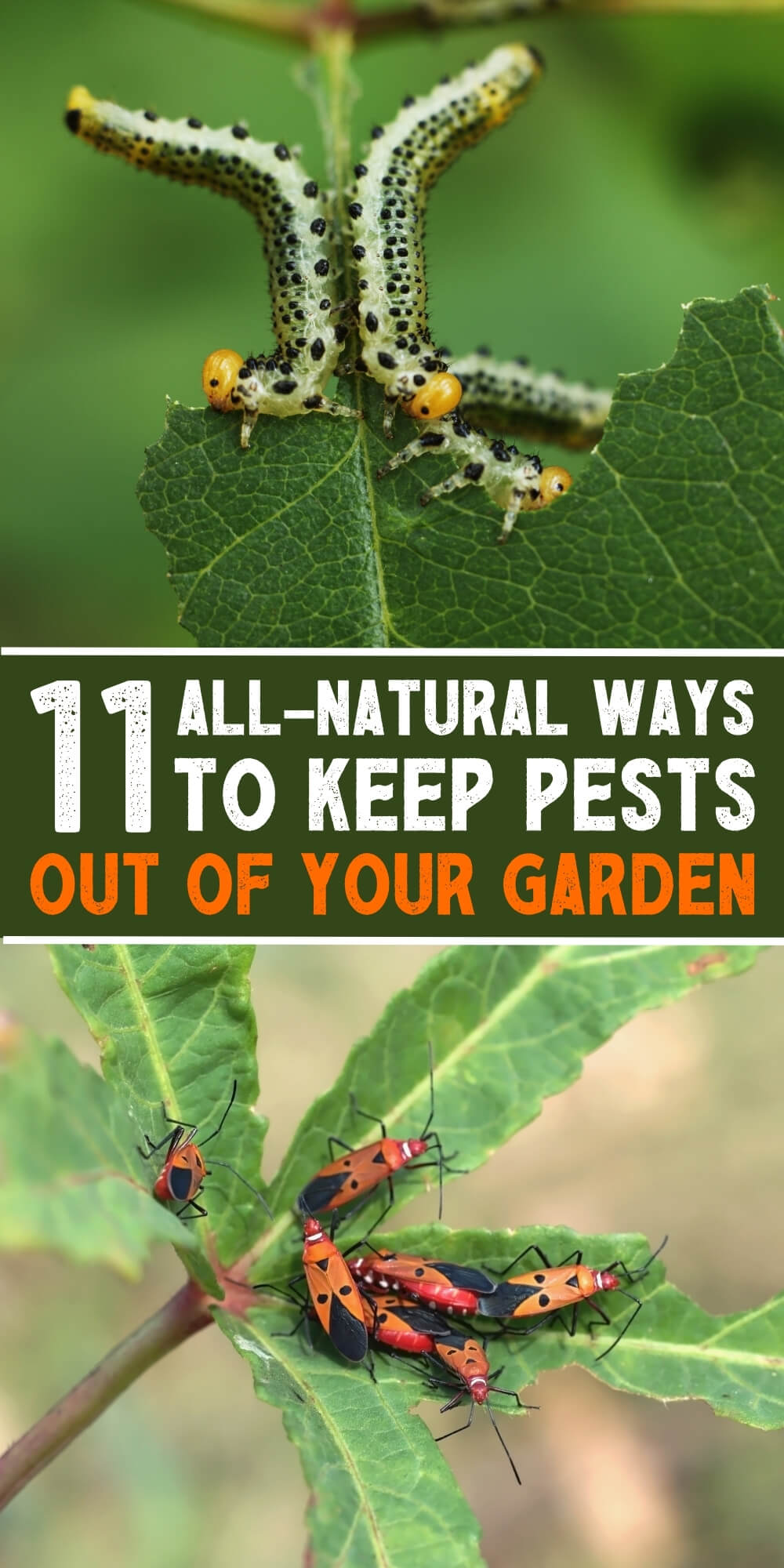




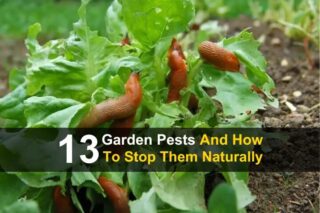
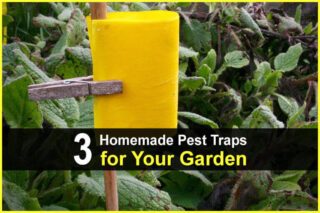
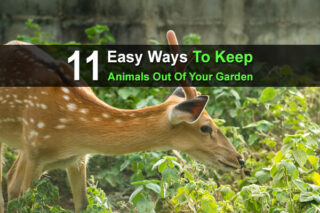
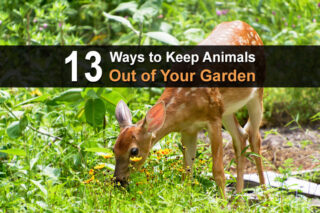
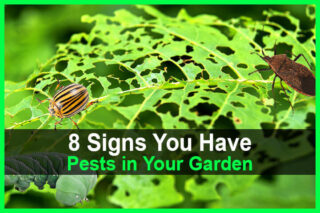


Nice tips! But i have a question!
Which way is better? Organic way or calling a pest service?
My mangoes are growing small what to put to them Ricardo
How do I keep Snails and slugs off my vegetables.
How can I keep pigeons out of my garden all so slugs and snails
Pigeon netting is probably your best bet. As for slugs and snails, check out tips 4 & 5 in this article: https://homesteadsurvivalsite.com/common-garden-pests-deal-naturally/
Beer in a side dish make sure no cat or dog drink from it an owl in strategic well placed area will scare bad birds can be plastic or clay or glass.
To keep bugs out I use a sprayer with a dissolved bar of ivory soap. The only problem is it washes off in the rain and to thick of a solution tends to clog the sprayer but diluting it more with warm water clears the sprayer.